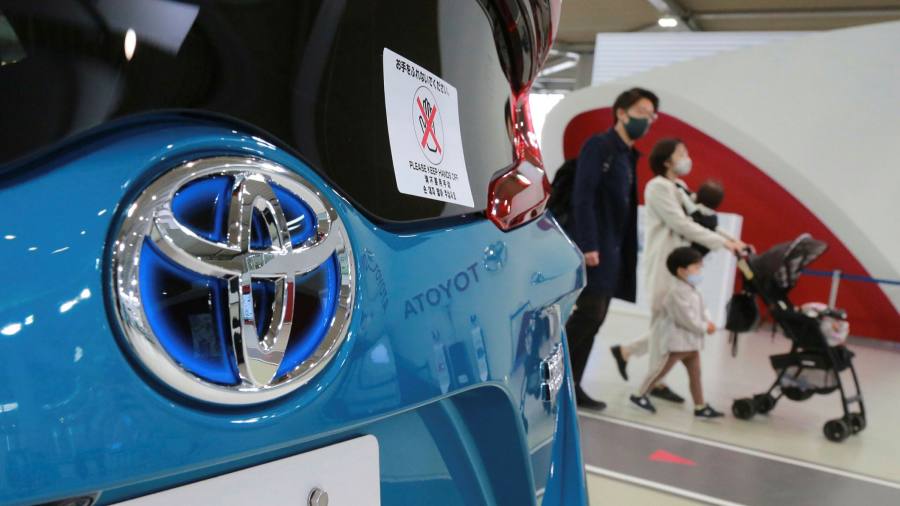[ad_1]
Toyota raised its full-year profit guidance by 54 per cent and said it did not expect any major disruption to production, shrugging off a global pandemic-triggered chip shortage that has crippled the car industry.
The Japanese carmaker overtook Germany’s Volkswagen as the world’s largest carmaker last year, outperforming rivals in both sales and profit margin during the final three months of 2020. The rally was driven by a strong rebound in all its key markets including China and the US.Â
Its shares briefly rose more than 3 per cent to their highest level since the summer of 2015 on Wednesday after Toyota forecast an operating profit of ¥2tn ($19bn) for the fiscal year ending in March, higher than the ¥1.3tn projected in November. It also raised its group-wide global vehicle sales target by 3.3 per cent.
The increased projections — the second in three months — also highlighted Toyota’s supply chain management skills. Its global rivals have been forced to make fewer cars due to a lack of chips sparked by the sudden rebound in car sales towards the end of last year.
“We are also affected by the global semiconductor shortage, but for now, we’re not experiencing big cuts to production,†Kenta Kon, Toyota’s chief financial officer, said in an online news conference.
Japanese carmakers have been less affected by the chip bottlenecks than their peers in Europe and the US after weathering supply chain disruptions caused by the Tohoku earthquake and tsunami in 2011.Â
Toyota, in particular, has managed to limit production cuts thanks to higher-than-average chip inventory of up to four months and, said Kon, by keeping its suppliers up to date with precise vehicle production plans as far as three years in advance.
For the October to December quarter, Toyota said operating profit rose 54 per cent from a year earlier to ¥987.9bn, exceeding the ¥566.6bn forecast in an S&P Global Market Intelligence analyst poll.
Vehicle sales rose 22 per cent in China, 13 per cent in North America and 15 per cent in Europe.Â
The results came a day after domestic rivals Nissan and Honda reported similar increases in annual profit guidance, as aggressive cost-cutting cushioned sales declines caused by the chip shortage.
The two also said they did not expect the chip shortage to have a major impact on the new financial year starting in April.Â
“We think that by May or June next (fiscal) year, the whole world should be out of this crisis,†Ashwani Gupta, Nissan’s chief operating officer, said on Tuesday.
To offset the impact of the Covid-19 slowdown and chip shortage, Honda said it spent less on marketing and travel as lockdowns forced marketing and sales events online. That enabled the carmaker to raise its full-year net profit forecast by 19 per cent to ¥465bn.
For the fiscal year ending in March, Japan’s second-largest carmaker Nissan trimmed its net loss forecast to ¥530bn from ¥615bn.
[ad_2]
Source link





